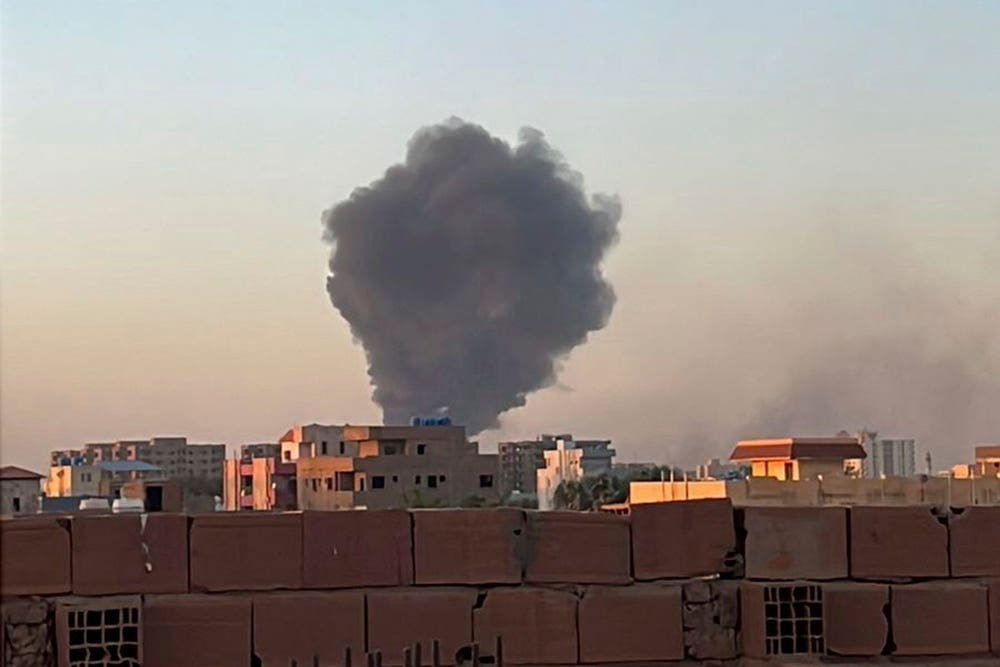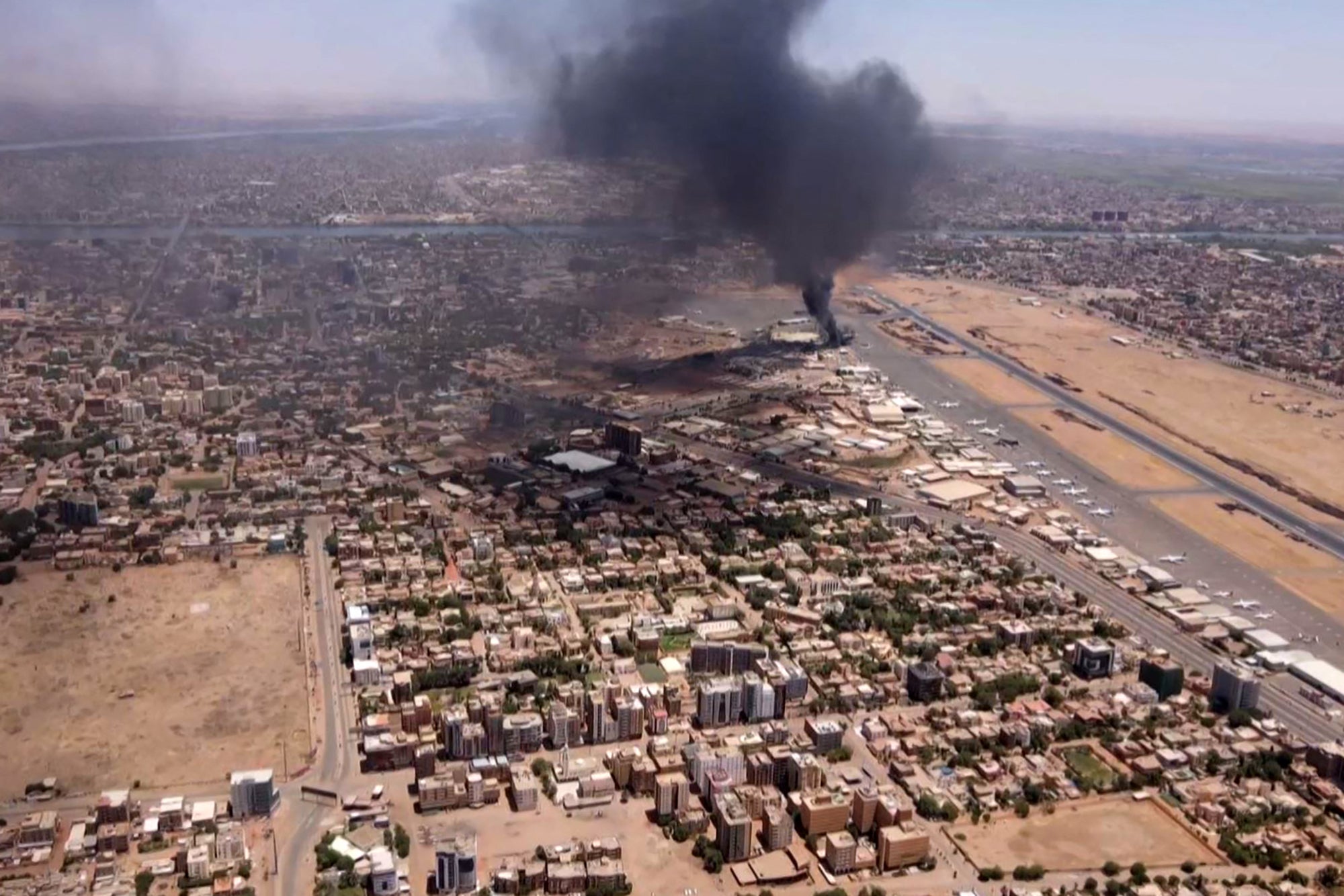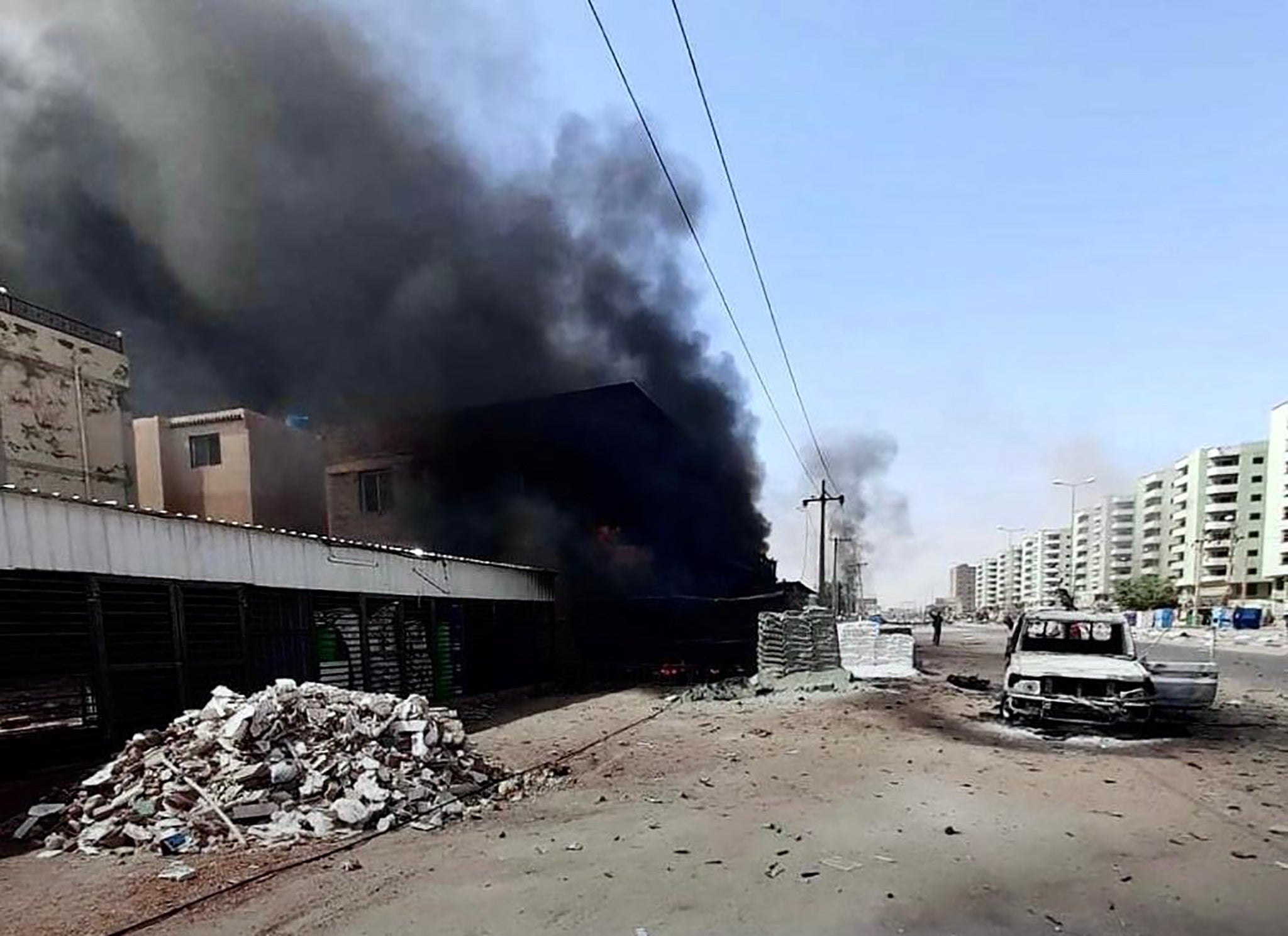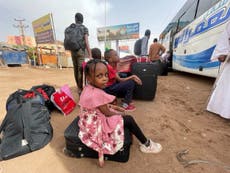Rescue of UK civilians from Sudan could be more dangerous than evacuation of Kabul, officials warn
‘In Khartoum there is fighting in the neighbourhoods where Western nationals are most heavily concentrated, and that makes it very difficult,’ says one defence official

Your support helps us to tell the story
From reproductive rights to climate change to Big Tech, The Independent is on the ground when the story is developing. Whether it's investigating the financials of Elon Musk's pro-Trump PAC or producing our latest documentary, 'The A Word', which shines a light on the American women fighting for reproductive rights, we know how important it is to parse out the facts from the messaging.
At such a critical moment in US history, we need reporters on the ground. Your donation allows us to keep sending journalists to speak to both sides of the story.
The Independent is trusted by Americans across the entire political spectrum. And unlike many other quality news outlets, we choose not to lock Americans out of our reporting and analysis with paywalls. We believe quality journalism should be available to everyone, paid for by those who can afford it.
Your support makes all the difference.The rescue of thousands of British civilians from the violence in Sudan could be more dangerous and difficult than the chaotic airlift that unfolded in Kabul after the Taliban seized the Afghan capital.
The stark warning from senior British officials came as an RAF C-17 aircraft landed in Port Sudan for troops to carry out reconnaissance for the extraction of around 4,000 people who have been stranded in the country since lethal strife erupted between the forces of two rival military strongmen.
While the tumultuous Afghan evacuation led to desperate refugees being trampled to death outside the airport – and a suicide bombing claiming 183 lives – fighting between government forces and the Taliban was coming to an end when the flights were underway.
The senior military officers and security officials cautioned about the risks of the Sudan mission as news emerged that a French special forces soldier was “gravely ill” after being shot while escorting his country’s diplomats out of Sudan. It also emerged that two locations where Turkish citizens were told to gather for evacuation had come under fire.

The UK officials pointed out that American and British forces had been present during the operation in Kabul, and there was an agreed timeframe with the Taliban for the evacuation to take place.
The Sudan mission, however, will have to be undertaken while clashes continue between the forces of General Abdel Fattah al-Burhan, the head of the army, and Mohamed Hamdan Dagalo of the paramilitary Rapid Support Force (RSF). Some of the fiercest exchanges have been taking place in districts of Khartoum where British and other foreign nationals are now trapped.
James Heappey, the armed forces minister, said that options to evacuate from Sudan by air, land and sea were being examined, and the Ministry of Defence would present the options available for the prime minister to come to a final decision.
Each route has difficulties. The Wadi Seidna airfield near Khartoum, which had been used by the UK and other states to fly people out, is comparatively small, capable of handling just A400M-sized transport aircraft at a time. This was in marked contrast to Kabul where the combined capacities of the military and civilian airports allowed dozens of flights to operate every day.
Port Sudan, where the UK reconnaissance team arrived, has experienced less violence than the Sudanese capital. Naval passages can be arranged from there and two Royal Navy ships are in the region. The frigate HMS Lancaster is in nearby waters while the supply ship RFA Cardigan Bay is undergoing maintenance in Bahrain.
However, getting the evacuees to Port Sudan from Khartoum would mean a journey of 500 miles (just over 800km) along roads where fighting has taken place in recent days. Although some civilians have managed to make their way to the coast, the situation remains highly volatile.

A senior UK defence source said: “This is a very, very different challenge to Afghanistan. Kabul was the last place of safety in Afghanistan. But we had troops on the ground, really good intelligence, really good relationships with the Afghan national security forces – and a defined period of time given to us by the Taliban – to get people out as quickly as we could. So although it was a deteriorating situation we started from a position where there wasn’t fighting going on in Kabul. We knew everything we needed to know and it was just a case of getting planes in and out.”
Expanding on the differences between Afghanistan and Sudan, the official, with deep knowledge of both missions, continued: “Khartoum is more dynamic, more dangerous. What happened in Kabul – thank heavens because it would have made things even worse – is that aside from that one tragic suicide bombing, there was not fighting going on between the Taliban and the ANA [Afghan National Army] while we were trying to do the evacuation.
“In Khartoum, today, there is fighting going on between the SAF and the RSF in the neighbourhoods where Western nationals are most heavily concentrated, and that makes it very difficult. That’s the difference in the relative dangers and dynamism of the situation in Khartoum versus Kabul.”
The UK, along with the US, is asking its nationals to stay at home. The senior defence source acknowledged that this was an extremely difficult choice. “If you tell people to stay at home they may be less likely to get shot,” the official said. “But the availability of food and water in the city is increasingly limited. If you tell people to leave home it’s towards safety. Then they get closer to food and water but they might be at increased risk. And that makes it very difficult to work out how we best support the people that are there.”
Earlier in the day, the Conservative chair of the Foreign Affairs Select Committee, Alicia Kearns, said the Foreign Office did not appear to have learnt lessons from the evacuation from Afghanistan. She told BBC Radio 4’s Today programme: “We have a moral obligation to tell British nationals as soon as possible that is the judgement that has been made, because they then need to make their own decisions.”
Responding to reports that British nationals who had registered with the Foreign Office had received just two computer-generated messages in the past week she added: “That would suggest no lessons have been learnt from Afghanistan and I have urged the government to make sure they are communicating regularly with British nationals. The reality is that, unlike other countries, we have thousands [of nationals in Sudan] so perhaps sometimes phoning around is terribly difficult.”



Join our commenting forum
Join thought-provoking conversations, follow other Independent readers and see their replies
Comments